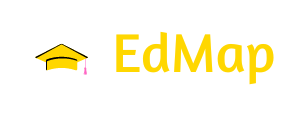School of Medicine
Doctor of Dental Medicine
Six for regular
Admission to regular undergraduate courses is based on the Ethiopian Higher Education Entrance Certificate Examination (EHEECE) scores, the student’s preference, and the capacity of Departments/Schools/Centers. The basic admission criterion for the regular program is successful completion of the common freshman courses, subject to academic performance assessment, and being physically and mentally healthy.
Students must take and pass all the required modules to satisfy the requirements for graduation. Other requirements might be set by specific University graduation requirements, including; Having CGPA and MGPA of at least 2.0; The student should pass the comprehensive exam of the school (internal examination), both in theory & practice before graduation; The student should pass the comprehensive external examination administered by external examiners (MOH); If not able to pass both internal and/or external exam, she/he will be delayed for a minimum of 3 months and then shall sit for the re exam; Pass successfully and complete internship/professional practice program;
Program Details

Carrier Direction
- Examine, diagnose, and treat tooth and gum infections, traumas, and anomalies.
- May be used to treat illnesses of the nerve, pulp, and other dental tissues that impair oral hygiene and tooth retention.
- Fitting dental equipment or providing preventive care Examine the teeth, gums, and surrounding tissues with dental instruments, x-rays, or other diagnostic equipment to assess dental health, detect diseases or anomalies, and arrange appropriate treatments.
- Use anesthetics to reduce the amount of pain patients feel during procedures.
Jobs directly related to Dental Medicine degree include:
- Dental hygienist
- Dental technician
- Dental therapist
Dentist Jobs where the degree would be useful include:
- Anatomical pathology technologist
- Health improvement practitioner
- Health service manager
- Higher education lecturer
- Medical sales representative
- Primary school teacher
- Science writer Secondary school teacher
- Teaching laboratory technician
The vast majority of graduates work as general dentists, in hospitals, or in private clinics.
They might also find work in:
- National and worldwide health charities, private hospitals, training and education, the armed services, universities, and clinical research organizations.
- Outside of dentistry, there are prospects in fields like as business, finance, marketing, education, and sales.
- A degree in dentistry teaches students subject-specific skills, technical dental skills, the capacity to recognize ethical dilemmas, and the skills necessary to treat patients in a caring and empathic manner.
- It also provides students with clinical competency as well as manual dexterity.
Furthermore, they will develop transferable skills that are appreciated both inside and outside of dentistry, such as:
- Administrative and management abilities are required to run a dental office.
- Analytical and problem-solving abilities to aid in clinical decision-making the capacity to effectively work in and lead a multi-skilled team improved verbal and written communication abilities through integrated placements and assignments
Courses
Courses | Course ECTS |
|---|---|
Communicative Skill (Enla1011) | 5 |
Communicative Skill (Enla1011) | 5 |
Computer Application in Medicine | 5 |
Medical Psychology | 5 |
Medical Sociology and Anthropology | 5 |
Body structure, Organization and Functions – I | 6 |
Body structure, Organization and Functions – II | 6 |
Metabolic Homeostasis and Molecular Genetics | 8 |
Basic concepts of Disease and Therapy | 6 |
Neoplasia and Molecular Basis of Cancer | 5 |
Musculoskeletal, Integumentary and Craniofacial Regions | 10 |
Cardioipulmonary System | 13 |
Nutrition, Metabolic diseases and the GIT | 8 |
Urinary system and Toxicology | 5 |
Infectious Diseases | 6 |
Determinants of Health and Disease and research Methodology | 6 |
Endocrinology and Reproduction | 13 |
Neurosciences and Behavior | 10 |

